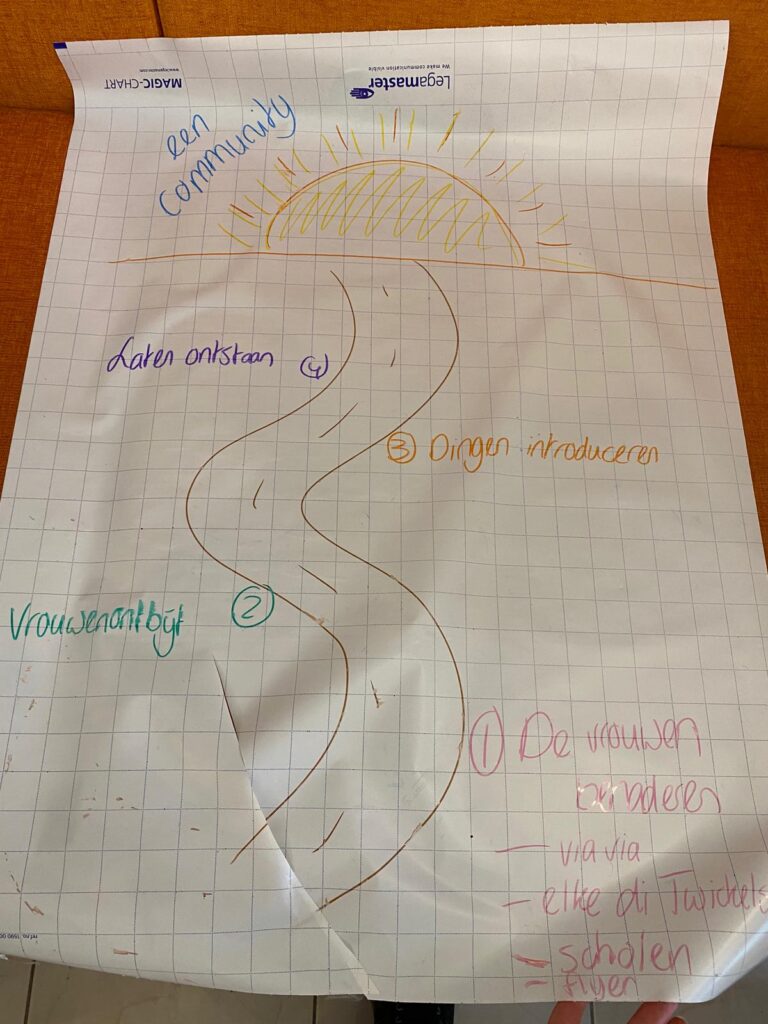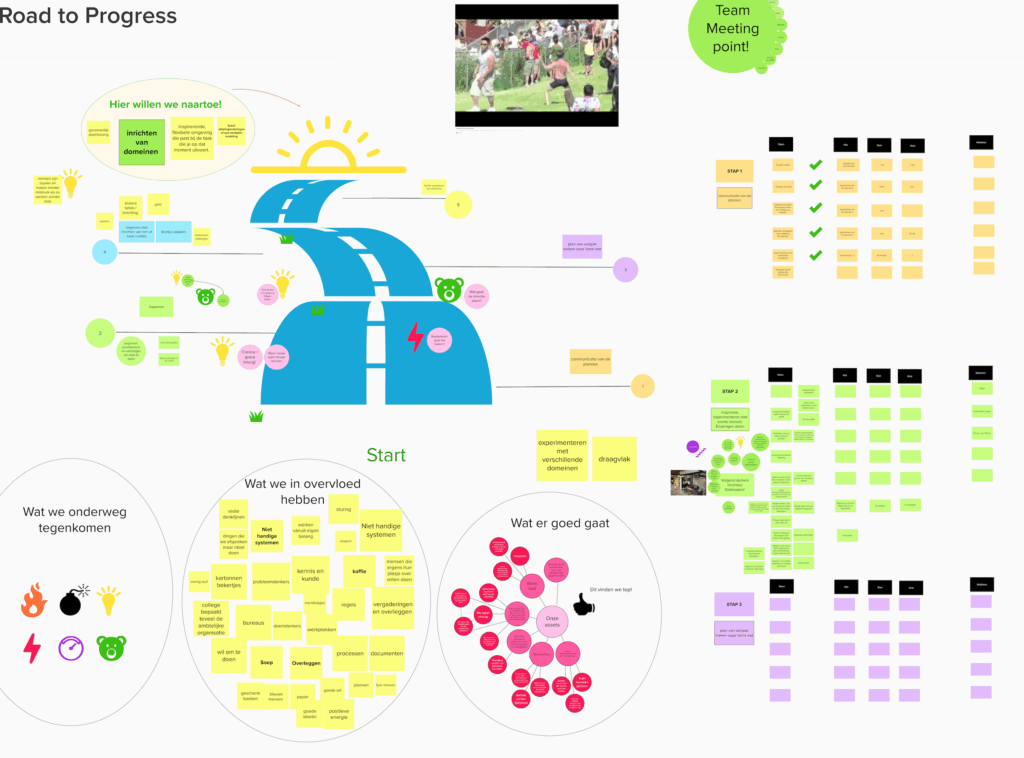The Road to Progress method helps groups to determine together with participants what steps (Road) must be taken to achieve a desired situation (Progress), and which obstacles, obstacles or steps must be taken to get there.
- When the shared vision among participants is clear but the steps to take to get there are not
Advantages
- Drawing the road, using metaphors sparks creativity
- Usually fun to do for participants
- Delivers a tangible outcome
Disadvantages
- Participants who feel uncomfortable drawing may be disadvantaged
- The drawing may remain vague, so there is an extra paper needed to write down concrete activities

This picture is an example of a Road to Progress drawing (from the PAR ‘Gezond Moerwijk en Laak’, work in progress). A winding road is drawn on a large sheet of paper that ends with the drawn horizon, which represents the desired situation. Participants are asked to describe on the road the steps that are necessary to reach the desired situation – the horizon – and which actions are needed. Any expected obstacles are added (visually or not) and participants discuss how they can remove the obstacle or get around it. You can also ask participants to add “accelerators”: what can make us reach our horizon faster or easier? This can be done by referring to the assets that have come to light during the System Exploration stage. The steps drawn in the first place need to become more concrete as participants add concrete actions that help to take each step. Road to Progress is also suitable for combining with BackCasting, by letting participants start right at the horizon and thus moving a little farther to the present, where you increasingly challenge participants to become more concrete in terms of actions the closer we get to the present. Ideally, at the very beginning of the road, you have actions that are very small, clear and relatively easy to implement, such as making a phone call. This lowers the threshold for participants to start with the final action plan. If a desired situation consists of several “horizons”, it is possible to choose to combine the Road to Progress method with World Café.

